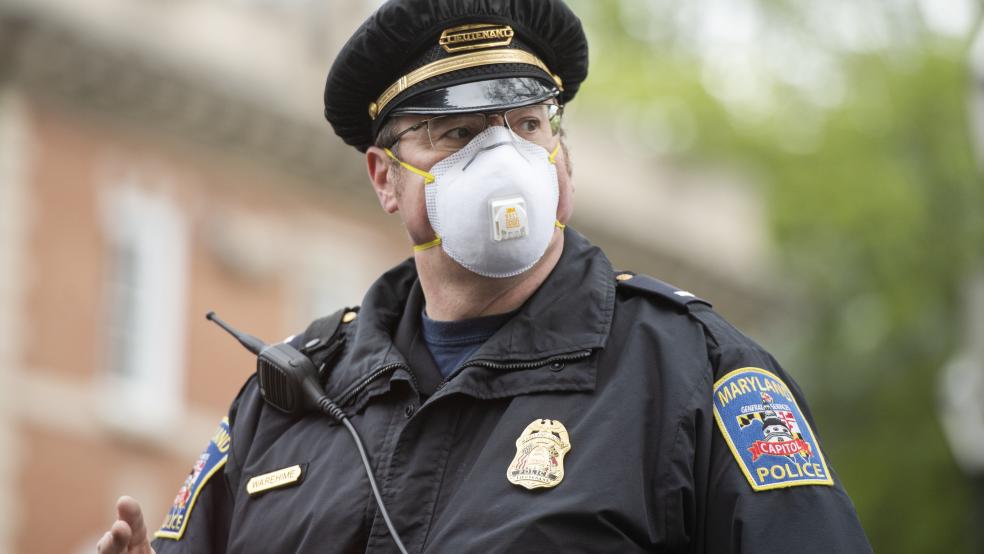States are confronting massive budget shortfalls as tax revenues plunge and social safety net spending soars, but there’s no clear sense in Washington about how to approach the problem. Despite strong evidence that federal assistance was both necessary and effective during the last recession, a political battle has broken out over state aid, says Michael Grunwald of Politico, leaving many local leaders wondering if they will receive the help they need.
Democrats are pushing for nearly a trillion dollars in additional aid to the states, as part of an effort to limit the damage caused by layoffs and reduced spending at the state and local level. The CARES Act signed into law in March provided $150 billion in direct aid for state, local and tribal governments, and Democrats have proposed $915 billion more in the HEROES Act that passed in the House in May. But Republicans say they have no intention of taking up the bill and have started pushing back against the idea of further aid, particularly any assistance that could be seen as a bailout of Democratic-led blue states.
“Polls show that most voters want Washington to help states avoid layoffs of teachers, police officers and public health workers,” Grunwald writes, “but Senate Majority Leader Mitch McConnell, Fox News personalities, and other influential Republicans are trying to reframe state aid as Big Government Democratic welfare spending.”
The experience of the Great Recession: In an effort to prevent layoffs and cutbacks that could make the recession even worse, President Obama proposed $200 billion in aid for states in 2009 as the economy was still deteriorating. But both Democratic and Republican lawmakers pushed back against the unprecedented size of the aid package, whittling it down to $140 billion. Still, the aid was effective, and there is widespread agreement among economists that it helped ease the recession, even though the relatively small size limited its effects.
“There were at least a dozen papers written on the state aid, and the evidence is crystal clear that it helped,” says former Obama economic adviser Jason Furman. “Unfortunately, it was incredibly hard to get Congress to do more of it, and that hurt.”
The pivot to austerity: Most states have balanced-budget rules, which force governors to cut back on spending during recessions as revenues fall. Those cutbacks make the recession worse, most economists agree, by further reducing spending at a time when local economies are already shrinking. In the wake of the coronavirus, states have started announcing layoffs and budget cuts, moves that will almost certainly amplify the effects of the contraction.
Some economists worry that the political struggle over additional federal aid will fail to prevent a turn to austerity in state and local budgets. “There wasn’t a lot of evidence that state aid would be good stimulus in 2009, but now there’s a lot of data, and it all adds up to juice for the economy,” Moody’s chief economist Mark Zandi told Politico. “It’s baffling that this is getting caught up in politics. If states don’t get the support they need soon, they’ll eliminate millions of jobs and cut spending at the worst possible time.”
A plea from a governor: Larry Hogan, the Republican governor of Maryland, wrote an op-ed Monday asking Congress to move quickly to provide more assistance. “The revenue losses states are projected to face are more than double what we experienced during the Great Recession,” Hogan said, adding that “no amount of fiscal prudence could have fully prepared any state for the scope of this challenge.” Hogan argued that another round of federal aid will help keep the nearly 15 million people employed by state and local governments working, providing essential services that help keep the country afloat. Forcing those employees off the payrolls would not be “a fiscally responsible choice,” Hogan said, since it would simply increase the unemployment rolls while further slowing the economy.
“In past times of war, natural disaster and economic depression, Americans have put aside partisan bickering to find common ground on the urgent challenge right in front of us,” Hogan pleaded. “In that spirit, Congress came together to swiftly pass the CARES Act to deliver aid for America’s businesses and workers. That is what is required of us once again.”




